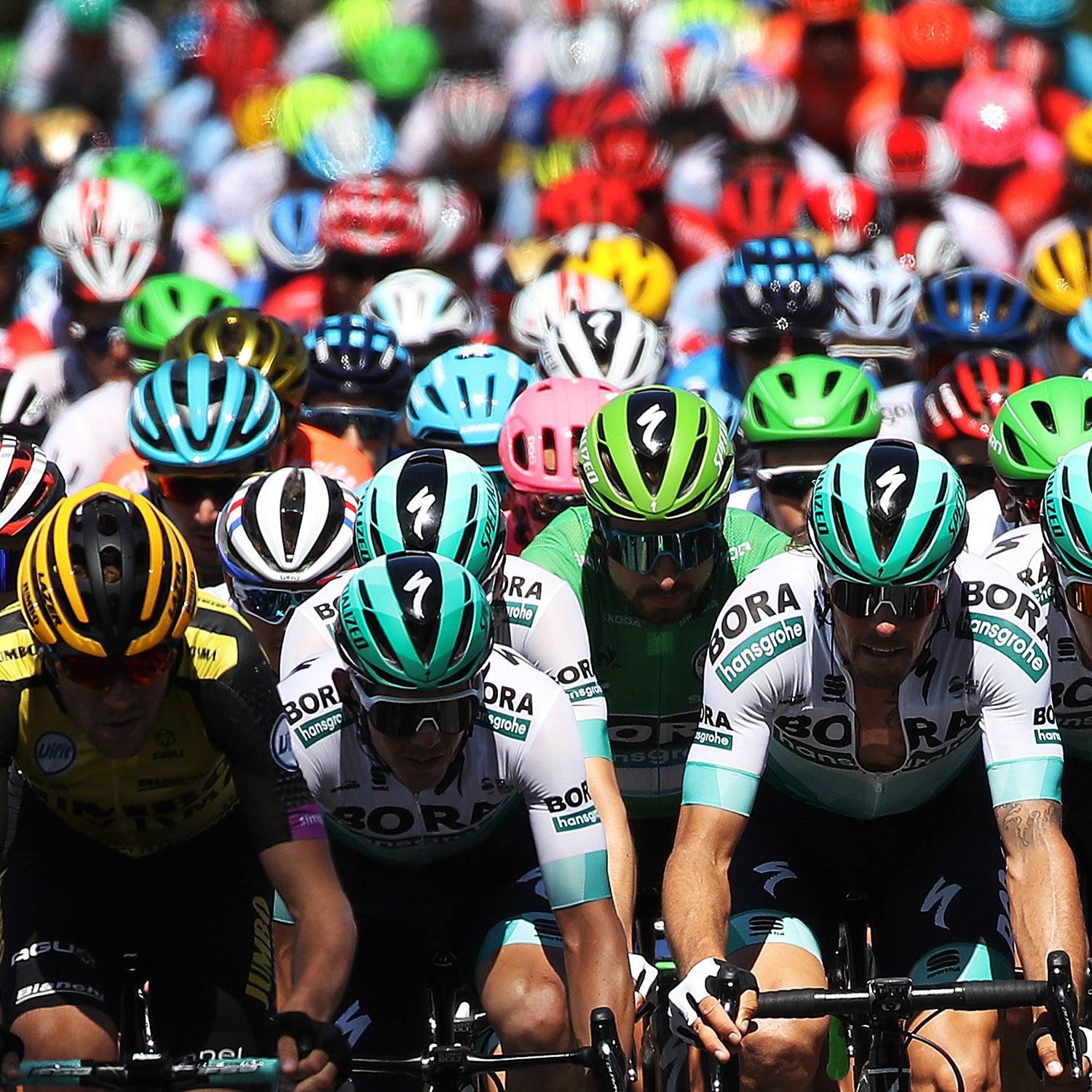As someone who spent far more time daydreaming than playing sports, I never imagined IÔÇÖd become the sort of father who harbored any sort of athletic expectations of his children. However, IÔÇÖm also a cyclist. Therefore, IÔÇÖd be lying if I told you that when I ride with my son, I donÔÇÖt imagine him one day crossing the finish line on a bike with his arms aloft and claiming the victory that always managed to elude me.
In fact, occasionally IÔÇÖll take fantasy even further: What if he was really good? Like get-paid-to-ride-your-bike good? Would I give him my fatherly blessing to embark upon the life of a professional cyclist?
When considering a pie-in-the-sky career for your child, you naturally assume their success is all but assured. Your mind goes right to whoever embodies the pinnacle of achievement in that particular field, and you picture your kid as the next Warren Buffett, or Beyonc├ę, or Michael Jordan, as the case may be. When it comes to American cyclists, however, there are fewer household names to choose from, and so your mind goes right to Lance Armstrong, who won the Tour de France an unprecedented seven┬átimesÔÇŽonly to be stripped of all his titles in ignominy. Obviously there are much easier ways for your child to break into a career in podcasting, so you may already have cooled considerably to the idea.
When considering a pie-in-the-sky career for your child, you naturally assume their success is all but assured.
Then thereÔÇÖs the profoundly arduous nature of professional cycling itself. Should your child choose this life, they will find themselves┬ágrinding out the training miles day after day along the shoulder of some lonely highway, risking life and limb, foregoing relationships with normal humans, and living out of their car so they can travel across three states to races with $75 prize lists in the hopes of maybe getting picked up by a domestic pro team that can . Or┬áperhaps theyÔÇÖll even hit the big time and go to Europe, where the life of a professional stage racer is far more glamorous. For example, they could find themselves in the Ruta del Sol, where riders recently faced () dangerous ÔÇťgravel descentsÔÇŁ and ÔÇťlarge potholesÔÇŁ that ÔÇťput their safety and well-being in serious danger,ÔÇŁ according to a statement from the athletes. They might even get to take part in one of cyclingÔÇÖs most prestigious and celebrated events, the Giro dÔÇÖItalia, where this year the numerous ┬áwere merely a prelude to the .
The brutality and attrition of cycling is, of course, what makes it so thrilling to follow, but it can also evoke the deadly days of Formula 1 in the 1960s and 1970s, which prompted drivers like Jackie Stewart to . Deaths in Formula 1 have declined significantly since the sport implemented such measures as . Traditionally, . While fatal crashes in cycling are mercifully rare, injuries arenÔÇÖt, and yet a concussion protocol only in December 2020, along with other important measures, such as updated race vehicle rules and a crash databaseÔÇöthough ironically riders and fans alike seemed to react mostly by . Go figure. (, when the UCI notified more than 800 riders of the planned changes via email, fewer than 20 actually opened it.)
Of course, crashing isnÔÇÖt the only danger in professional cycling; thereÔÇÖs also the dark path of doping. Certainly in every sport there are competitors who succumb to the temptation of performance-enhancing drugs. However, pro cyclists as athletes in leagues like the NBA, NFL, or MLB, which . Consequently, drug testing for cyclists is much more frequent, and the penalties for failing are much more severe, which means if your kid screws up, then itÔÇÖs time to .
Most importantly, cycling isnÔÇÖt just Lance Armstrong and Grand Tour pileups.
And thatÔÇÖs before you even consider .┬áThe intimacy of sport, the trust young athletes must place in their trainers, and the modus operandi of sexual predators mean that┬áthis is a danger regardless of the athletic pursuit. ItÔÇÖs in no way unique to cycling: , and was convicted on 45 charges of sexual abuse.┬áNevertheless, while cycling has made a big show of punishing cheaters, it has also been criticized for , allowing coaches accused of abuse to return to work after suspensions.
All this should be enough to convince any parent that they should keep their kids as far away from pro cycling as possible. But at the same time, itÔÇÖs not a parentÔÇÖs job to scare a child; itÔÇÖs a parentÔÇÖs job to give them the confidence to discover who they are. To forsake curiosity and passion for fear of facing risk and adversity is to give up on life itself. Obviously, IÔÇÖd be proud of my son no matter which career path he choseÔÇöexcluding truly morally reprehensible vocations like drug kingpin, contract killer, or advertising executiveÔÇöand to seek oneÔÇÖs fortune upon a bicycle requires a tremendous amount of courage and dedication. WhatÔÇÖs more, if undertaken with purity of spirit, it can only result in successÔÇöeven if that success comes because pro cycling turned out to be so horrible that it motivated him to find another line of work. You never know how youÔÇÖll wind up finding your true path.
Most importantly, cycling isnÔÇÖt just Lance Armstrong and Grand Tour pileups. ItÔÇÖs also Andy Hampsten ,┬áKatie ComptonÔÇÖs lengthy p▓╣▒˘│ż▓╣░¨├Ę▓§, and even this whole gravel thing, which is shaping up to be pretty interesting. ItÔÇÖs entirely possible the next great competitive cycling discipline hasnÔÇÖt even been invented yet. Cycling is a beautiful sport, and its future continues to evolve, so why discourage your child from becoming a part of it and maybe even helping to shape it if theyÔÇÖre so inclined?
Even so, IÔÇÖll probably start dropping hints about law school soon. CouldnÔÇÖt hurt.


